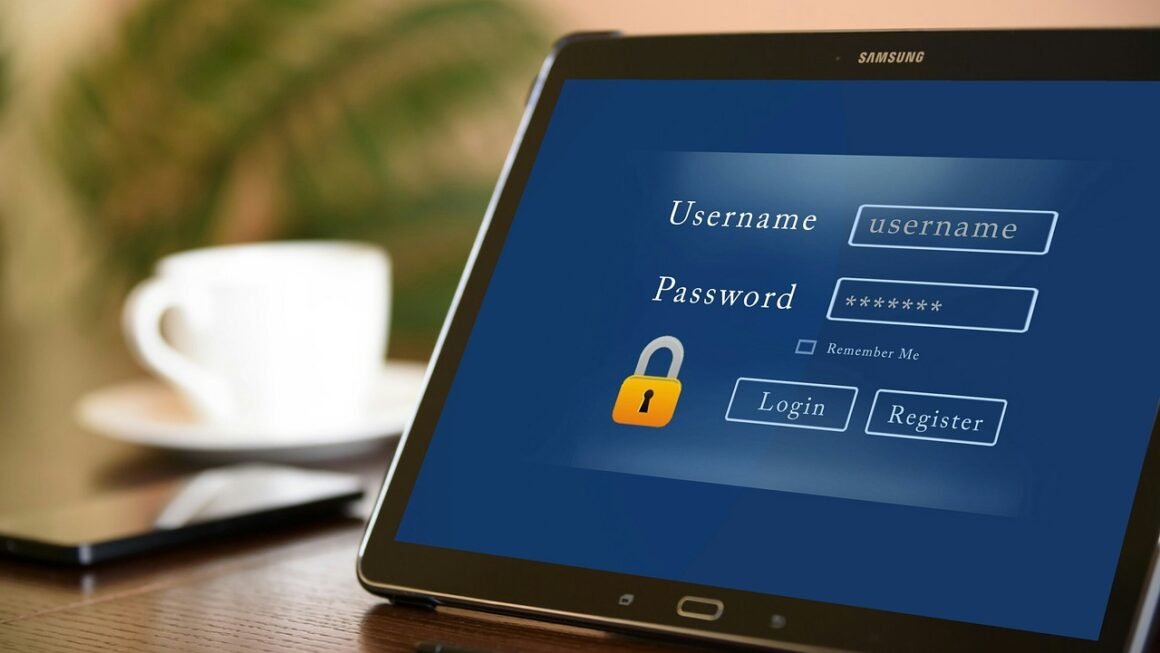The digital landscape is rife with threats lurking around every corner, from insidious malware to sophisticated phishing scams. In this environment, relying solely on common sense and cautious browsing habits is no longer sufficient. A robust antivirus software is your essential first line of defense, acting as a vigilant guardian against the ever-evolving dangers that threaten your devices and data. Choosing the right antivirus solution can seem daunting, but understanding its core functions and features will empower you to make an informed decision and fortify your digital security.
Understanding Antivirus Software
What is Antivirus Software?
Antivirus software, at its core, is designed to detect, prevent, and remove malicious software (malware) from your computer, tablet, or smartphone. This includes viruses, worms, Trojans, ransomware, spyware, and adware. Antivirus programs employ various methods to achieve this, from scanning files and programs for known threats to monitoring system behavior for suspicious activity. They are constantly updated with the latest threat signatures, ensuring they can identify and neutralize emerging dangers.
How Antivirus Software Works
Antivirus software uses a combination of techniques to protect your system:
- Signature-based detection: This is the traditional method, comparing files against a vast database of known malware signatures. When a match is found, the software flags the file as malicious. This is generally effective for known and widespread threats.
- Heuristic analysis: This technique analyzes the behavior of files and programs to identify potentially malicious activities. Even if a file doesn’t match a known signature, suspicious actions like attempting to modify system files or connecting to unusual network addresses can trigger an alert.
- Behavioral monitoring: This goes a step further than heuristic analysis by actively monitoring the behavior of running programs in real-time. This allows the software to detect and block malware even if it hasn’t been seen before.
- Sandboxing: Some advanced antivirus programs use sandboxing to isolate suspicious files in a virtual environment, allowing them to be safely analyzed without posing a threat to the system.
The Importance of Regular Updates
Antivirus databases need constant updating because new malware is created every day. Without these updates, your antivirus software becomes increasingly ineffective against emerging threats. Most antivirus programs offer automatic updates to ensure you always have the latest protection. A report from AV-TEST shows that over 400,000 new malicious programs are registered every day, highlighting the importance of up-to-date antivirus definitions.
Key Features to Look For in Antivirus Software
Real-Time Protection
Real-time protection is arguably the most crucial feature of any antivirus program. It continuously monitors your system for suspicious activity and blocks threats before they can cause harm. This proactive approach is far more effective than simply scanning your system periodically.
- File system scanning: Real-time scanners are constantly checking files as you open, copy, or save them.
- Web protection: This feature blocks access to malicious websites and prevents drive-by downloads.
- Email scanning: Scans incoming and outgoing emails for malicious attachments and phishing links.
Comprehensive Scanning Options
While real-time protection is essential, manual scanning is also important for thorough security. Look for antivirus programs that offer various scanning options:
- Quick scan: A fast scan that checks the most vulnerable areas of your system.
- Full system scan: A comprehensive scan that examines every file on your hard drive.
- Custom scan: Allows you to specify which folders or files to scan.
- Scheduled scans: Automate regular scans to ensure your system is protected even when you’re not actively using it.
Additional Security Features
Many antivirus programs offer additional features beyond basic malware detection and removal, enhancing your overall security posture.
- Firewall: A firewall acts as a barrier between your computer and the internet, blocking unauthorized access and preventing malware from communicating with external servers.
- Ransomware protection: Specific features designed to detect and block ransomware attacks, which can encrypt your files and demand a ransom for their release.
- Phishing protection: Identifies and blocks phishing websites that attempt to steal your personal information.
- VPN (Virtual Private Network): Encrypts your internet traffic and masks your IP address, providing anonymity and protecting your privacy when browsing online. (Often available as an add-on).
- Password manager: Securely stores and manages your passwords, helping you create strong and unique passwords for each of your online accounts.
Choosing the Right Antivirus Software
Consider Your Needs and Budget
The best antivirus software for you depends on your specific needs and budget. Factors to consider include:
- Number of devices: Do you need protection for one computer or multiple devices?
- Operating system: Make sure the software is compatible with your operating system (Windows, macOS, Android, iOS).
- Level of protection: Do you need basic protection or more advanced features like a firewall or VPN?
- Budget: Antivirus software ranges in price from free to premium subscriptions.
Read Reviews and Compare Products
Before making a purchase, read reviews from reputable sources and compare different antivirus products. Look for independent testing results from organizations like AV-TEST and AV-Comparatives to get an unbiased assessment of their performance. Look for reviews that specifically address the aspects of security that are most important to you.
Trial Periods
Many antivirus companies offer free trial periods, allowing you to test out the software before committing to a purchase. This is an excellent way to see if the software meets your needs and if you like the interface. Take advantage of these trials to make an informed decision.
Free vs. Paid Antivirus Software
Limitations of Free Antivirus
Free antivirus software can provide basic protection, but it often comes with limitations:
- Limited features: Free versions typically lack advanced features like a firewall, ransomware protection, or VPN.
- Less frequent updates: Updates may be less frequent than with paid versions, leaving you vulnerable to new threats.
- Advertising: Some free antivirus programs display advertisements, which can be annoying.
- Data collection: Some free antivirus programs may collect your data and share it with third parties.
Benefits of Paid Antivirus
Paid antivirus software offers a more comprehensive level of protection:
- Full feature set: Includes all the features mentioned above, such as a firewall, ransomware protection, VPN, and password manager.
- Faster updates: Provides faster updates to protect against the latest threats.
- No advertising: No annoying ads to distract you.
- Customer support: Offers dedicated customer support to help you with any issues.
- Improved detection rates: Often performs better in independent tests, demonstrating a higher detection rate for malware.
- Example:* Many free antivirus programs offer “web protection,” but it may only block known dangerous websites. A paid version is more likely to use advanced heuristic analysis to identify and block new phishing scams in real-time.
Conclusion
Protecting your digital life requires a proactive approach, and a reliable antivirus software is an indispensable tool in that endeavor. By understanding the threats, how antivirus software works, and the features to look for, you can make an informed decision and choose the right solution for your needs. While free options offer basic protection, investing in a paid antivirus program provides a more comprehensive and robust defense against the ever-evolving landscape of cyber threats. Remember to keep your software updated and scan your system regularly to ensure maximum protection. Taking these steps will significantly reduce your risk of becoming a victim of malware and safeguard your valuable data.



